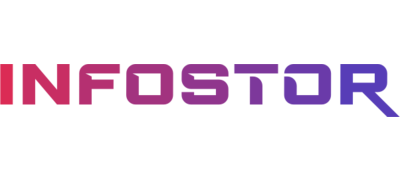Sun Microsystems has announced that it is handing some of its storage technologies over for free to the storage developers within the OpenSolaris community in the hopes that users and developers will combine the open source Solaris operating system with industry standard hardware to create commodity storage products.
Sun’s executives believe the move will result in lower prices and higher performance. “If you look across the IT industry the parts are being changed one-by-one because of low- cost hardware and free software,” says Nigel Dessau, senior vice president of marketing at Sun. “Storage suppliers have been using general-purpose hardware and open software, but they’ve never really passed the economic benefits on to users.”
Dessau says starting today, Sun will begin embedding its storage-related intellectual property in the Solaris operating system and, essentially, give it away for free. “We’re giving our IP to customers and letting them use it the way that they think it should be used,” Dessau says.
The free Solaris 10 operating system currently includes features such as Solaris Dynamic Tracing (DTrace), Solaris Containers, Predictive Self Healing, the ZFS dynamic file system, and Trusted Extensions.
Sun also announced the previously “Sun-only” administration features of ZFS will now be made available to OpenSolaris as well, including the ZFS Clone Promotion feature, which allows storage users to turn a clone back into the active file system, and the Recursive Snapshots feature, which automatically creates snapshots for all descendent file systems.
Sun is also offering Double Parity RAIDZ, a feature that protects against device failure, and Hot Spares for ZFS Storage Pool Devices, which can replace failed or faulted devices, eliminating downtime after disk failure.
Also part of Sun’s open source plan are its Point-in-Time Copy data service and Remote Mirror data service, NFS v4.1, YANFS, iSCSI device drivers, OSD device drivers and related software, and a QLogic Fibre Channel HBA driver.
OpenSolaris already provides a native CIFS client, UFS, Solaris Volume Manager, Traffic Manager for multi-pathing I/O support, a Fibre Channel framework with drivers, as well as traditional target drivers.
Sun also has plans to open source more of its storage technology in the coming months. The Sun/StorageTek QFS shared file system, Storage Archive Manager, StorageTek 5800 client interfaces, and the company’s kernel-based CIFS server simulator/server and other storage-related technologies are all slated for inclusion in the Solaris OS.
Sun’s distribution of OpenSolaris, Solaris 10, currently runs on all major hardware vendor platforms, including those from IBM, Hewlett-Packard, Dell, and Sun.
According to Dessau, if the open source storage effort succeeds, end users will see the storage industry morph into a commodity market with lower prices. But that success may depend on how Sun intends to proceed with the open source approach.
“Can Solaris be a storage operating system? Maybe. Microsoft did it with Windows Storage Server, but it depends on how aggressively Sun wants to pursue this model,” says John Webster, principal IT advisor with the Illuminata research and consulting firm.
Webster says the jury is out as to whether the open source approach will be a disruptive force in the industry, but its ultimate success or failure falls on Sun’s shoulders.
“Giving away your intellectual property on its surface is an aggressive move, but if you’re not proactive in following through then you miss out on opportunity,” he says.
Webster adds that Sun needs to develop things such as use case models and line up a number of storage partners to give Solaris a fighting chance as a storage OS. The industry on the whole, however, might be ripe for a little disruption.
“Change is already in the wind. The open source community is already out there doing other disruptive things. They are going to start changing the game,” says Webster.
Sun is expected to make additional product announcements related to its open source efforts in the coming weeks.






